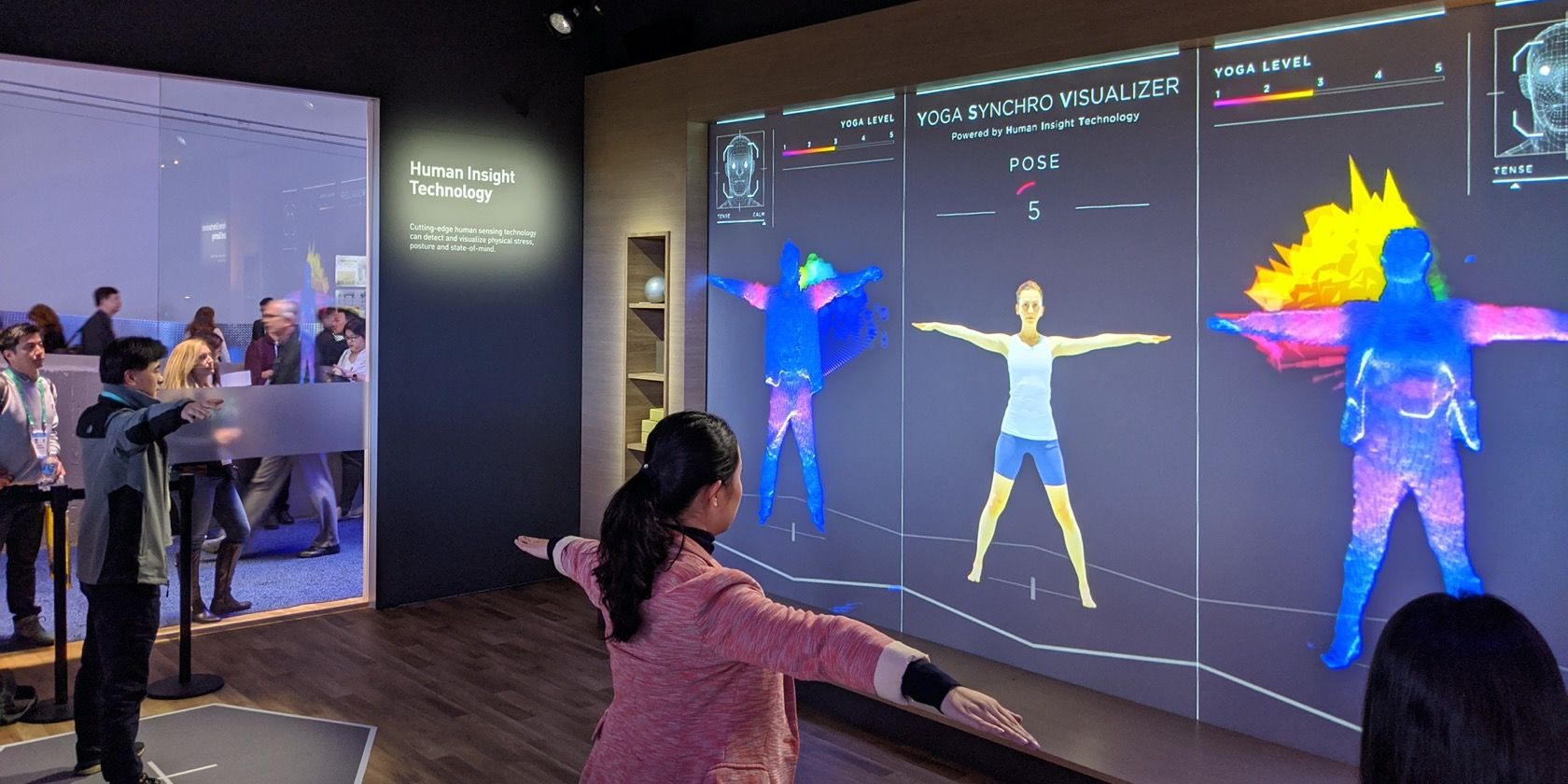
At CES 2020, Panasonic showed off its Human Insight Technology. This functionality offers a whole new level of automated understanding of people’s physical and mental states, and has lots of exciting uses that may come to living and work spaces near you.
On the show floor, we saw a demo of the technology with observers doing a few yoga poses. As they followed the program’s lead to perform the moves, a heat graph updated in real time to show where the participants’ bodies were experiencing the most stress. Throughout the yoga poses, you could also monitor the balance of each person performing the exercises.

While this isn’t a technology that consumers would purchase directly, it has many interesting applications that we could see happen in the coming years.
For example, consider a company whose workers have to lift heavy objects regularly. It could use Human Insight Technology to see where the employees are most straining their bodies, potentially saving them from painful back injuries.
The technology also handles automated recognition of people’s mental state based on visual cues. From tells such as facial expression, blink rate, speed of movements, and similar motions, you can figure out if someone is happy, excited, nervous, or any other number of emotions.
With this in mind, a company could analyze what effect certain kinds of background music have on their employee’s productivity. A restaurant might adjust lighting levels automatically based on analysis of patrons’ skin temperature and heart rate. And you could study how well students are paying attention based on their facial expressions and body motion.

While this functionality definitely has promise, there are some concerning implications as well. While Panasonic says that it “uses non-invasive sensor and imaging to capture and interpret data based on human habits and behaviors,” it’s not hard to see how this could be used to invade people’s privacy.
Automated sensors could tell when someone looks frustrated and report it to security for example. As another example, it would easily allow advertisement screens to change their contents based on the profile of who walks by.
We’re interested to see what uses companies come up with for this Panasonic technology. But in a way, it also calls to mind elements of futuristic dystopias seen in media.
Read the full article: Panasonic’s Human Insight Technology Could Transform Everyday Spaces
from MakeUseOf https://ift.tt/2s3FNBr

No comments:
Post a Comment